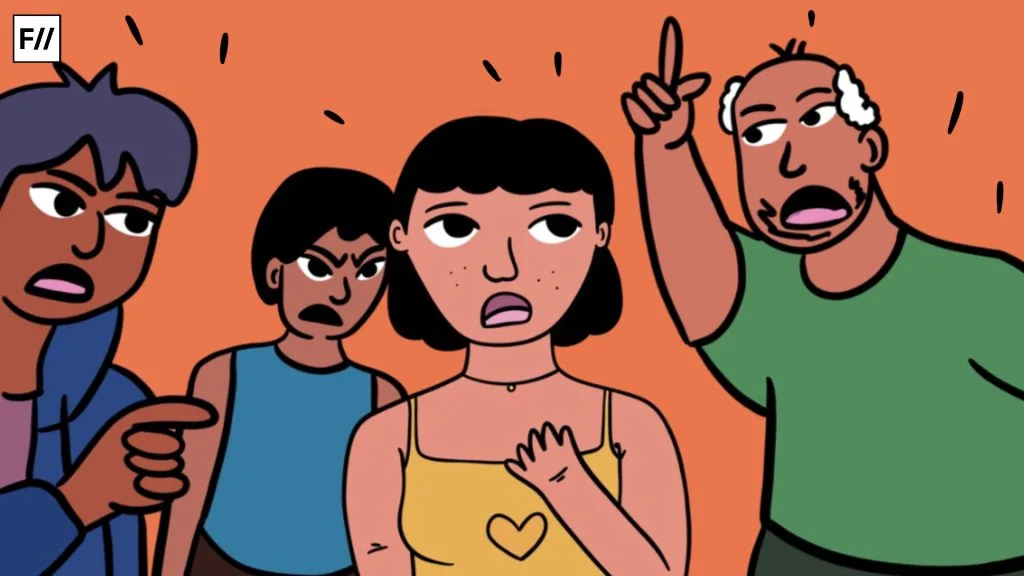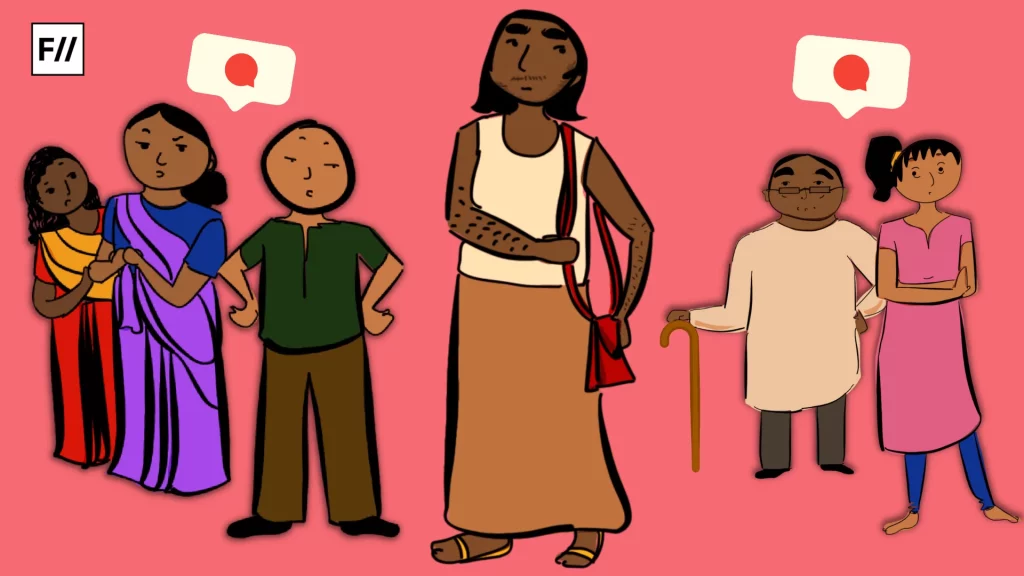In Kerala, sophistication takes on many forms. A business tycoon who can afford to bring Maradona to Kannur believes that—there’s no price to pay—for slandering an actress at a public event. A self-declared “feminist” who posts detailed, lengthy updates about feminism deems it perfectly fine to equate women with sensual mythological figures, shrouding sexual harassment in the form of “cultural criticism.” And a sea of educated men, all with smartphones at their fingertips, think their masculinity gives them enough right to develop “a dirty mind” every time they see a photo of Honey Rose. This is the new Kerala model of development—where erudition breeds arrogance and abuse is mislabeled as humour.
When “just jokes” cross the line: the case of Honey Rose
Welcome to God’s Own Country, where sexism and harassment comes with an air of refinement. For a long time, Honey Rose has borne the brunt of Malayalam social media’s light-hearted banter. Every image, every sighting, every styling choice becomes the target of a never-ending cycle of sexually-charged jokes and online memes.
Every image, every sighting, every styling choice becomes the target of a never-ending cycle of sexually-charged jokes and online memes.
The public reaction to her Instagram posts reads like a textbook on misogyny, where everyone—from faceless online bullies to celebrities—feels permitted to make off-colour remarks about her appearance and outfits.
This incessant online objectification has cultivated an environment where abuse is not only accepted but even encouraged. A troubling glimpse into this toxic culture was seen at a public event, when Bobby Chemmanur aka Bo.Che—a prominent business leader—allegedly made a comparison between Honey Rose and “Kunti Devi” with an evident sexual subtext.
‘My silence might have given the wrong impression that I am enjoying this,’ Rose noted following her complaint against Chemmanur and thirty others. Take a moment to sink that in. Honey Rose—a notable actor—was forced to justify she wasn’t “taking pleasure” in years of inappropriate humour concerning her body and looks.
In Kerala, women are meant to “humour” their harassers or risk being seen as difficult, unable to handle a silly joke. When the woman speaks out at last, she is invariably asked: ‘Why mention it now?‘—as if there is a deadline on seeking respect.
When the woman speaks out at last, she is invariably asked: ‘Why mention it now?‘—as if there is a deadline on seeking respect.
The trend is all too familiar—fame, objectification and silence. This toxicity deepens when so-called media pundits race to give their “cultured” defense for harassment. Enter Rahul Easwar, who, in a nod to Rose’s “right to criticise,” felt the urge to slip in the predictable “but”—a caution that her attire has been heavily criticised by the public. It is classic victim-blaming under the veneer of intellectual garb, replete with an implication that her complaint may be a publicity stunt for her upcoming release, Rachel.
‘Over the years, I have gone through many traumatic days and I have faced depression,’ Rose shared, breaking her long-held silence on what Kerala often brushes off as a “harmless joke.” When Rose showcases a traditional style, the internet explodes with sarcasm pertaining to her “supposed modesty.” When she favours Western fashion, the focus suddenly turns to her “being needy.” Her accomplishments are never credited to her skill or dedication—it is always perceived in relation to her looks and beauty.

‘I was being stalked and targeted repeatedly,’ Rose stated. Take note of the term “repeatedly” here. It is not just about one event or a lone businessman; it is about a culture that normalises harassment. For a state that takes great pride in literacy and social development, Kerala has legitimised a type of harassment that would even put the most sexist cultures to shame. The online machinery of harassment runs non-stop, turning every feature of a woman’s work life into fodder for the next big internet laugh.
When the spotlight burns
Rose’s struggle is not merely a matter of legality—it’s a matter of existence. How do you manage your professional responsibilities when your social media feed is hit with a wave of inappropriate jokes? How do you participate in public functions when businessmen believe they have the right to make obscene remarks about your appearance? These are not questions without intent—they are the harsh truths many women face everyday within Kerala’s film and entertainment sector.
In that respect, Rose’s police complaint points to an uncommon act of defiance. However, let us make it absolutely clear—this does not represent a win. At least, not yet. When Rose shares, ‘I couldn’t take it anymore,‘ she is voicing the sentiments of many others. She is amplifying the voices of those women who have been instructed to “tolerate” harassment, every actress who has been pressured to “go along” with sexist jokes and every artist who has been belittled into a meme.
While Chemmanur’s arrest is plastered over almost all news outlets, the true story revolves around Kerala’s moral and ethical lapse.
While Chemmanur’s arrest is plastered over almost all news outlets, the true story revolves around Kerala’s moral and ethical lapse. How did a place celebrated for its largest pool of female graduates serve as a hub for targeted cyberbullying? The answer points directly to the state’s unique blend of “progressive” values—one that champions women’s empowerment through education but expects them to absorb the trauma of harassment without speaking out.

The digital world has only magnified what has always been inherent in the Keralite social norms—an unconscious bias against women who insist on forging their own paths. Social media is just a symptom, not a source of this misogyny. What begins as a WhatsApp rumour can now snowball into being reiterated at public events, closing the loop on institutionalised harassment.
As Kerala proudly showcases its progressive image, the Honey Rose story stands as a timely reminder that true advancement cannot solely be measured by literacy levels and development indices. It should be, on the other hand, evaluated by how it supports and protects its most visible and vulnerable women, and whether it is ready to tackle its pervasive culture of tolerated abuse.
As Rose’s case moves forward in the legal process, it compels us to face an uncomfortable truth: In Kerala, progress halts at the comment section.
The issue is not limited to whether Kerala will churn out more “double meaning” jokes. The problem is: how many more women will be victimised before Kerala wakes up to the reality that its brand of sexualised humour is not merely lacking in humour and it is a violent act that wreaks havoc on individuals under the illusion of “fun”. As Rose’s case moves forward in the legal process, it compels us to face an uncomfortable truth: In Kerala, progress halts at the comment section.
About the author(s)
Akhila holds a Masters' degree in Society and Culture from IIT Gandhinagar. With a passion for exploring ideas through words, she enjoys writing and reading, often diving into books and essays that challenge perspectives. When not immersed in her academic or creative pursuits, she finds joy in watching movies and engaging in thoughtful conversations.






